
Jazz Samba is a bossa nova album by Stan Getz and Charlie Byrd released by Verve Records in 1962. Jazz Samba signaled the beginning of the bossa nova craze in America. Stan Getz was the featured soloist and the tracks were arranged by Charlie Byrd, who had first heard bossa nova during a tour of Brazil in 1961.

Brilliant Corners is a studio album by American jazz musician Thelonious Monk. It was his third album for Riverside Records, and the first, for this label, to include his own compositions. The complex title track required over a dozen takes in the studio.
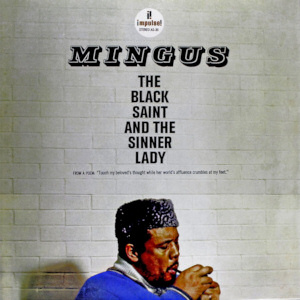
The Black Saint and the Sinner Lady is a studio album by American jazz double bassist, composer and bandleader Charles Mingus. It was recorded on January 20, 1963, and released in July of that year by Impulse! Records. The album consists of a single continuous composition—partially written as a ballet—divided into four tracks and six movements.

Live at the Regal is a 1965 live album by American blues guitarist and singer B.B. King. It was recorded on November 21, 1964, at the Regal Theater in Chicago. The album is widely heralded as one of the greatest blues albums ever recorded and was ranked at number 141 in Rolling Stone's 2003 edition of the 500 Greatest Albums of All Time list, before dropping to number 299 in a 2020 revision. In 2005, Live at the Regal was selected for permanent preservation in the National Recording Registry at the Library of Congress in the United States.

Da Capo is the second studio album by the American psychedelic rock band Love, released in November 1966.
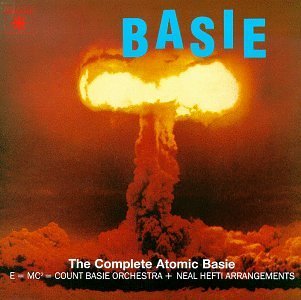
The Atomic Mr. Basie (originally called Basie, also known as E=MC2 and reissued in 1994 as The Complete Atomic Basie) is a 1958 album by Count Basie and his orchestra. Allmusic gave it 5 stars, reviewer Bruce Eder saying: "it took Basie's core audience and a lot of other people by surprise, as a bold, forward-looking statement within the context of a big-band recording." It is included in the book 1001 Albums You Must Hear Before You Die, Will Fulford-Jones calling it "Basie's last great record." It was voted number 411 in the third edition of Colin Larkin's All Time Top 1000 Albums (2000). According to Acclaimed Music, it is the 6th most critically acclaimed album of 1958, the 25th most acclaimed of the 1950s, and the 837th most acclaimed of all time, based on an aggregation of hundreds of critics' lists from around the world.

Music from The Penguin Cafe is the first studio album by the Penguin Cafe Orchestra. It was recorded between 1974 and 1976, and released in 1976.
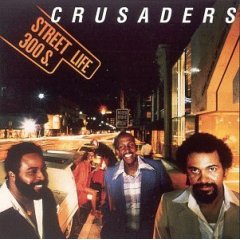
Street Life is a studio album by the American jazz band The Crusaders. It was a top 20 album on three Billboard charts and represents the peak of the band's commercial popularity. The title track, featuring singer Randy Crawford, was a Top 40 pop single and became the group's most successful entry on the soul chart. It was No. 5 on the UK Singles Chart. "Street Life" also hit the disco chart, peaking at No. 75, and was re-recorded by Doc Severinsen with Crawford reprising her vocal for the opening sequence of the noir crime drama Sharky's Machine, directed by Burt Reynolds in 1981. This faster paced version was also featured in Quentin Tarantino's Jackie Brown, released in 1997.
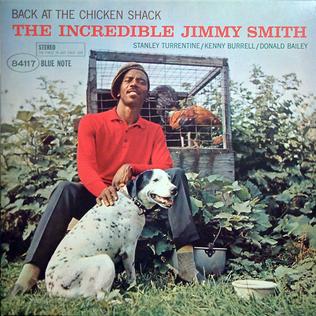
Back at the Chicken Shack is an album by Jimmy Smith. It was recorded in 1960 and released in 1963 on the Blue Note label. Smith recorded the album in the same session as his previous album Midnight Special. Fittingly, he wears the same red shirt on both album covers. It was cited in the book 1001 Albums You Must Hear Before You Die.

1001 Albums You Must Hear Before You Die is a musical reference book first published in 2005 by Universe Publishing. Part of the 1001 Before You Die series, it compiles writings and information on albums chosen by a panel of music critics to be the most important, influential, and best in popular music between the 1950s and the 2010s. The book is edited by Robert Dimery, an English writer and editor who had previously worked for magazines such as Time Out and Vogue.

The Wildest! is an album by Louis Prima, first released in 1956. It features singer Keely Smith with saxophonist Sam Butera and the Witnesses. It is considered an innovative mixture of early rock and roll, jump blues and jazz as well as eccentric humor.
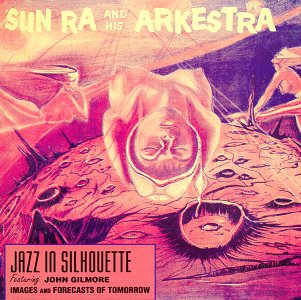
Jazz in Silhouette is a jazz album by pianist-composer Sun Ra and His Arkestra. It was recorded on March 6, 1959 and released in May of the same year. The album was recorded in Chicago during a session that also included the whole of the albums Sound Sun Pleasure!! and "Interstellar Low Ways" from the album of the same name.

African Dawn is a solo piano album by Abdullah Ibrahim.

Spy vs Spy: The Music of Ornette Coleman is a 1989 album by American composer and saxophonist/multi-instrumentalist John Zorn, featuring the compositions of Ornette Coleman performed in the brief intense style of Zorn's hardcore miniatures.
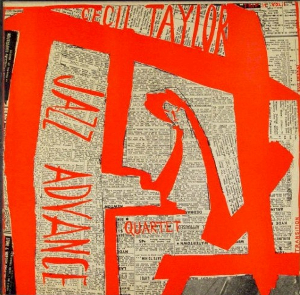
Jazz Advance is the debut album by pianist Cecil Taylor, recorded for the Transition label in September 1956. The album features performances by Taylor with Buell Neidlinger, Denis Charles and Steve Lacy.
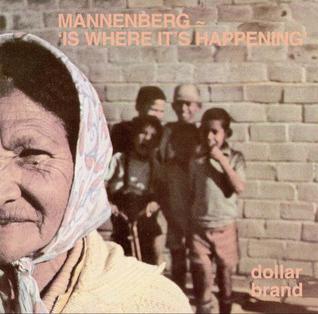
"Mannenberg" is a Cape jazz song by South African musician Abdullah Ibrahim, first recorded in 1974. Driven into exile by the apartheid government, Ibrahim had been living in Europe and the United States during the 1960s and '70s, making brief visits to South Africa to record music. After a successful 1974 collaboration with producer Rashid Vally and a band that included Basil Coetzee and Robbie Jansen, Ibrahim began to record another album with these three collaborators and a backing band assembled by Coetzee. The song was recorded during a session of improvisation, and includes a saxophone solo by Coetzee, which led to him receiving the sobriquet "Manenberg".
Reflections is a solo piano album recorded in 1965 by Abdullah Ibrahim.

Ancient Africa is an album by Abdullah Ibrahim, recorded in concert in 1972.
African Portraits is a solo piano album by Abdullah Ibrahim. It was recorded in 1973 and released by Sackville Records. Parts of the original release were later issued on compilation albums.
Sangoma is a solo piano album by Abdullah Ibrahim. It was recorded in 1973 and released by Sackville Records. Parts of the original release were later issued on compilation albums.

















